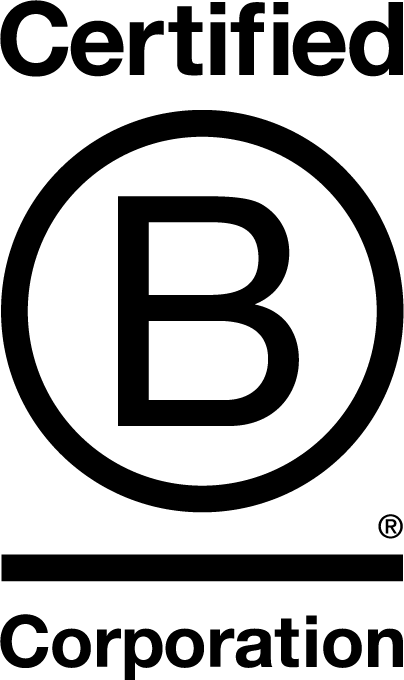Human Rights Policy
Human Rights Policy
9 July 2025
1.Purpose & Commitment
Seafood Legacy (SFL) aims to bring sustainable seafood into the mainstream in the Japanese and global seafood markets. SFL, moreover, recognizes that sustainable seafood must not only protect marine ecosystems but also safeguard the dignity, rights, and well-being of workers throughout the supply chain. To this end, SFL affirms its commitment to respect human rights across its operations and supply chains and enjoins its clients and partners to do the same. This policy embodies SFL’s commitment to ensure that SFL’s activities align with internationally recognized human rights principles and guidelines, including:
・International Bill of Human Rights
・The UN Guiding Principles on Business and Human Rights (UNGPs)
・The International Labor Organization (ILO) Core Conventions
・The OECD Guidelines for Multinational Enterprises
In addition to the above international principles and standards, SFL’s sustainability commitment includes compliance with Japan’s Corporate Governance Code and Sustainability Standards.
This policy is the foundation for realizing Seafood Legacy's vision: "A world where the ocean is brimming with life, where all people involved with the ocean are filled with smiles and vitality, and where a ray of hope shines for the future." The policy also supports SFL’s purpose: "To pass on to future generations the connections between the ocean's environment, economy, and society in a rich state." Beyond regulatory compliance, SFL aims to drive systemic change in Japan and the global seafood industry as a whole, making sustainable fishing and responsible seafood sourcing the norm, ensuring the preservation of the marine ecosystem for, and respecting the human rights of, the present and future generations.
2. Scope & Applicability
This policy applies to all SFL employees and workers employed by SFL and its contractors. In addition, the policy applies to all parties linked to SFL’s business activities.
3. Key Principles: Human Rights Risk Management
SFL prioritizes a risk-based approach to human rights due diligence as the foundation for mitigating human rights risks in seafood supply chains. SFL’s “Theory of Change” aims to make sustainable seafood mainstream in Japan and the global seafood market by focusing on four key business areas. Within these activity areas, SFL identifies and manages critical risks in alignment with its human rights policies.
AA1. Market Transformation: Responsible Supply Chains
In supporting supply chains to develop sustainable seafood procurement policies and implement sustainable production, distribution, and marketing strategies that align with the latest international standards, SFL ensures that its client/partner network commits to:
・Zero tolerance for forced labor, child labor, and human trafficking in the seafood supply chains.
・Fair wages, anti-harassment and discrimination protections, and safe working conditions for all seafood industry workers.
・Respect workers’ rights to freedom of association and to collectively bargain.
・Gender equality
・Respect for the rights of indigenous people
・Providing access to grievance mechanisms for workers to report abuses without fear of retaliation.
・Transparency in sourcing to prevent illegal, unreported, and unregulated (IUU) fishing.
・Corrective actions to prevent issues from recurring and to take remedial actions to address any harm caused by adverse events or actions.
AA2. Finance Engagement: ESG Investment & Accountability
Seafood Legacy aims to accelerate ESG compliance in the seafood industry by encouraging investors and financial institutions to actively prioritize environmental sustainability and social responsibility. SFL will:
・Expect ESG compliance
・Promote ethical financing that supports fair labor practices, respect for human rights, and environmental sustainability.
・Encourage investment and financing in the fishing industry to prioritize both environmental sustainability and the protection of workers’ human rights.
AA3. Policy Reform: Advocacy & Regulatory Compliance
SFL also seeks to facilitate ESG reforms through regulatory action and policy implementation by governments and international organizations. SFL will advocate for:
・Stronger labor protections for seafood workers, including migrant laborers.
・Enhanced government enforcement of anti-trafficking, anti-forced labor, and anti-child labor laws in seafood supply chains.
・International cooperation to align Japan’s seafood industry with global human rights standards.
AA4. Movement Orchestration
As SFL strives towards realizing its goal of building a sustainable global blue food system through collaborative initiatives, bringing together diverse actors in the seafood industry to build a multi-stakeholder movement, SFL commits to:
・Taking steps to ensure that stakeholders participating in the movement recognize the interconnectedness of seafood sustainability and social responsibility, and that this interconnectedness is reflected in their own policies and practices.
・Ensuring that initiatives integrated into the movement incorporate social sustainability objectives and are guided by internationally recognized human rights principles and standards.
SFL will also advocate for transparency in how clients and business partners assess, mitigate, and address human rights risks in their operations and supply chains.
In addition to guaranteeing labour rights, businesses’ social responsibility encompasses respect for the rights of potentially impacted stakeholders to an adequate standard of living (including the right to adequate food, water, housing, education, and healthcare, and the right to be protected from displacement.
4. Implementation & Monitoring
SFL will ensure the effective implementation of this policy by building internal capacity to integrate human rights considerations into business practices, supplier responsibility, foster industry-wide collaboration, and maintain rigorous monitoring standards.
SFL commits to:
・Establishing Human Rights Due Diligence Procedures: SFL will embed a risk-based approach in decision-making, identifying vulnerabilities in seafood supply chains through continuous human rights impact assessments, including the establishment of an effective grievance mechanism.
・Ensuring our employees participate, and encouraging our suppliers, partners, and clients to participate, in activities aimed at building their capacity to bridge the identified gaps in alignment with SFL’s Human Rights policy.
・Strengthening Multi-Stakeholder Collaboration: SFL will work closely with non-governmental organizations (NGOs), industry groups, workers, and regulators to align seafood industry practices with evolving international human rights standards.
・Implementing a Transparent Compliance Framework: SFL will establish clear benchmarks and tracking mechanisms for risk assessment, monitoring, and evaluating adherence to ethical labor practices, fair wages, safe working conditions, and human rights protections within seafood supply chains.
5. Reporting & Accountability
SFL commits to fostering transparency and accountability through systematic periodic reporting, independent oversight, and whistleblower protections to implement this policy.
SFL will:
・Publish regular Human Rights Impact Reports: SFL will release reports to review progress in human rights due diligence, identifying challenges, and outlining corrective actions taken to address identified risks.
・Develop an Independent Human Rights Monitoring Body: SFL will establish an impartial monitoring committee composed of human rights experts, labor advocates, and industry representatives to evaluate policy effectiveness and recommend improvements.
・Enhance Whistleblowing Protections & Reporting Mechanisms: SFL will build internal capacity to ensure an enabling environment for grievance and remedy. (Establish and maintain confidential reporting channels for workers, ensuring that grievances related to forced labor, wage violations, discrimination, and other human rights concerns are addressed without fear of retaliation.)
6. Review & Amendments
SFL recognizes that human rights risks evolve in tandem with shifts in the industry, regulatory changes, and global market demands. To ensure the policy remains effective and relevant, SFL will:
・Conduct Periodic Policy Reviews: SFL will reassess this policy at least every three years, integrating insights from audits, stakeholder feedback, and emerging best practices to strengthen protections for seafood industry workers. In case any urgent amendments are required, SFL will update accordingly.
・Align with Regulatory & Industry Developments: SFL will adapt its policy framework to new laws, international conventions, and evolving ESG standards to maintain alignment with global best practices.
・Implement a Continuous Improvement Model: SFL will refine strategies to accelerate responsible seafood governance, leveraging advancements in responsible sourcing, labor rights protections, and corporate accountability.



